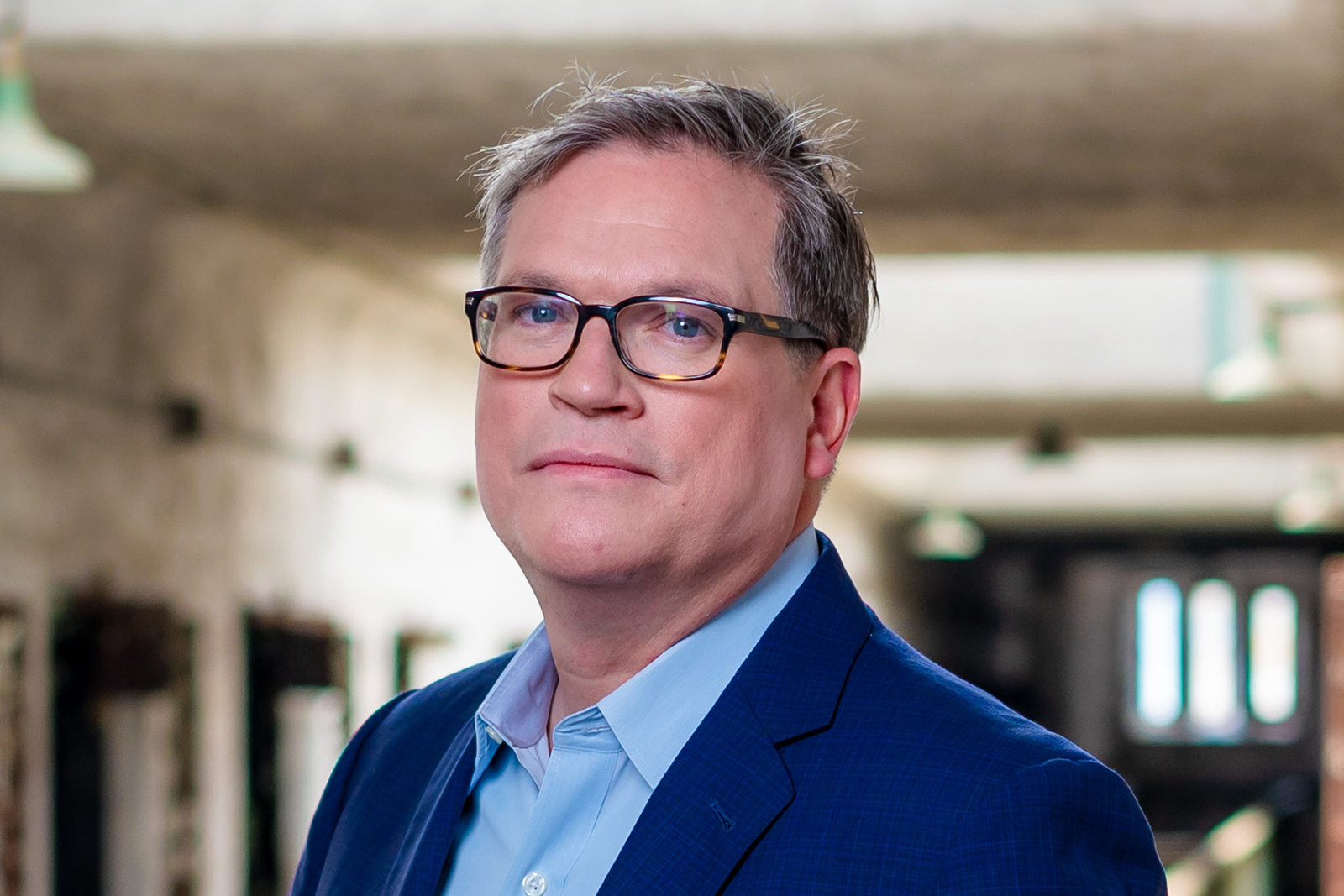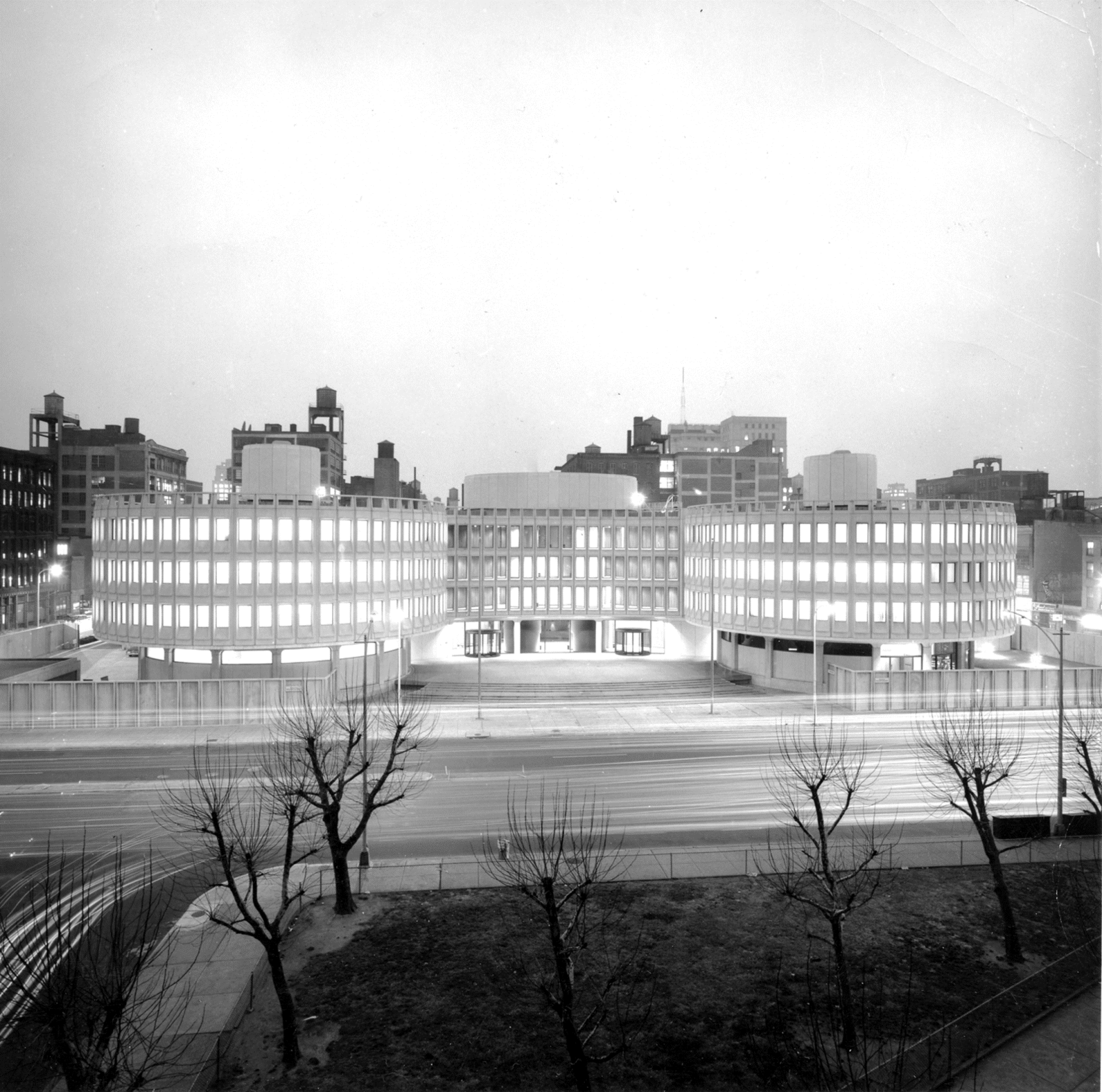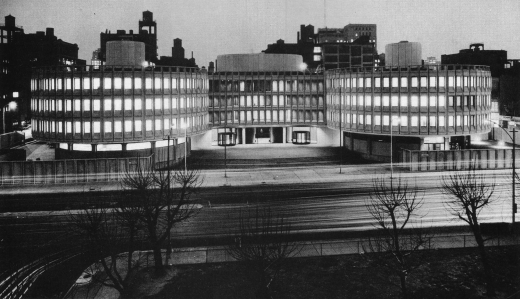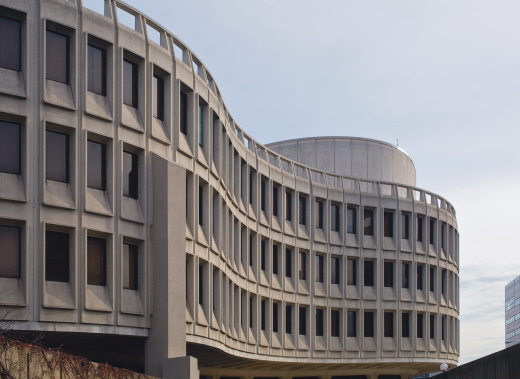Philadelphia’s Police Administration Building (1959-63, Robert Geddes) is a boldly sculptural, structurally expressive example of the variety of Mid-century Modernism that was called the “Philadelphia School.” It was created by Richardson Dilworth, the reform-minded mayor who moved many city services to new homes and away from Philadelphia’s Victorian City Hall, the symbol of what a turn-of-the century muckraker had called a “corrupt and contented” city.
But for many of today’s Philadelphians, the building, whose geometry earned it the nickname “the Roundhouse,” is not associated with Dilworth and reform but with the reign of Frank Rizzo, Philadelphia’s Police Commissioner in 1967-71 and mayor in 1972-1980. Rizzo’s racist policing and politicking scarred Philadelphians and disgraced their city.
What are the possible futures for a building with such a complicated past? To discuss this problem—and probably not to solve it--this panel brings together a city official whose department will set the parameters for the future of the building, a leader of the community that adjoins the site, an accomplished facilitator of civic engagement, and the director of programming at another monument with a challenging history.
The Pasts and Futures of the Roundhouse
Beth Sholom Synagogue
Elkins Park, PA
Moderator

David Brownlee
David Brownlee is a historian of modern architecture and urbanism in Europe and America. He has taught for his entire career at the University of Pennsylvania, where he won the Outstanding Teaching Award of the College Alumni Society and the university’s Lindback Award for Distinguished Teaching. An important focus of his scholarship is the architecture and planning of Philadelphia. His books include architectural histories of the Barnes Foundation, the Philadelphia Museum of Art, the Benjamin Franklin Parkway, and the Penn campus, and the catalogues associated with exhibitions devoted to Louis Kahn, Denise Scott Brown, and Robert Venturi. He has won the major publication prizes of the Society of Architectural Historians (USA), its British counterpart, and the American Institute of Architects. He was named a Fellow by the SAH in 2015, which in 2020 established the international Brownlee Dissertation Prize in his honor. Active in civic affairs, Brownlee served for 15 years on the Philadelphia Historical Commission, and he is now on the boards of the Preservation Alliance for Greater Philadelphia, the Athenaeum of Philadelphia, the World Heritage City project of the Global Philadelphia Association, the Beth Sholom Preservation Foundation, and the Design Advocacy Group. He is a recipient of the Wyck-Strickland Award and the Philadelphia AIA’s Paul Philippe Cret medal.
Panelists

Sean Kelley
Sean Kelley is Senior Vice President and Director of Interpretation at Eastern State Penitentiary Historic Site in Philadelphia. He produced the site’s award-winning audio tour, now heard by more than a million visitors, and has curated more than 100 site-specific artist installations in the building. He conceived and developed The Big Graph, a 16-foot infographic sculpture that illustrates the skyrocketing US Rate of Incarceration, and curated the companion exhibit Prisons Today: Questions in the Age of Mass Incarceration which won the 2017 Overall Award for Excellence from the American Alliance of Museums. From 2017 to 2019 he oversaw “Hidden Lives Illuminated,” a project which resulted in 20 original films made by currently incarcerated individuals and projected them for a month onto Eastern State Penitentiary’s façade. Mr. Kelley visits active prisons and writes critically about prison museums and sites of detention. He speaks widely on the responsibility of museums to address controversial and painful subjects, as well as the ethical and management challenges posed by large-scale fundraising events in sites with complex histories. He has served as adjunct faculty at Rutgers University, teaching Museum Studies in the graduate program in Public History, and at the University of Pennsylvania.

Rosalyn J. McPherson
Rosalyn McPherson is President of The ROZ Group, Inc., a firm she launched in 2005. She is highly regarded as a builder of strategic relationships and intercultural enthusiast. Her firm has served as project director for important history and science projects during their construction phase around the country including The President’s House; Octavius Catto Memorial; Thaddeus Stevens and Lydia Hamilton Smith Historic House (Lancaster, PA). Prior to launching her firm, Roz had a distinguished career in marketing and educational product development and subsequently museum administration. She served as Senior Vice President for the Science Center at the Franklin Institute. As Senior Vice President and Publisher for Time Life Education (Alexandria, VA), Roz was responsible for K-12 product development and marketing. Roz entered the workforce as a teacher of junior high social studies and mathematics. She also taught marketing at Rutgers University. Roz has an MBA degree in Marketing from Fairleigh Dickinson University (Teaneck, NJ) and a BS degree in Secondary Education from Southern University & A&M College (Baton Rouge, LA). She currently serves as co-vice chair for the board of Community College of Philadelphia. Roz has lived and traveled around the world since childhood and credits that experience with fostering her appreciation for the world’s varied cultures.

Eleanor Sharpe
Eleanor Sharpe is a Deputy Director in the Department of Planning and Development. She is responsible for the Division of Planning and Zoning. She oversees the Philadelphia City Planning Commission (PCPC), the Historical Commission, the Art Commission and the Zoning Board of Adjustment. Sharpe is also the Executive Director of the Planning Commission. She works with City Council, City agencies, and civic and community organizations to implement the recommendations of Philadelphia2035, the city's comprehensive plan. The plan aims to improve the city’s built environment. Sharpe has a Bachelor of Architecture from Howard University and a master's in city planning from the University of Pennsylvania.

Yue Wu
Yue Wu is the Neighborhood Planning & Project Manager for the Philadelphia Chinatown Development Corporation. In August 2018, Yue Wu joined PCDC to spearhead the implementation of key community development strategies outlined in the 2017 Chinatown Neighborhood Plan. Thus far, Yue has worked on a wide range of projects, including public space activation, community engagement, and equitable development advocacy. In partnership with Asian Arts Initiative and the Friends of Rail Park, Yue launched the Parks for Chinatown Initiative to engage the Chinatown community to activate their neighborhood public spaces. She is also an advocate for cultural heritage preservation. Yue holds a Master of Science in Historic Preservation (Preservation Planning) from the University of Pennsylvania.



